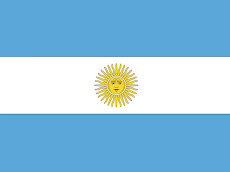
Me holding a baby like a Tanzanian Mama. You can tell from my real hair that this is a while back. I've realized lately that I haven't seen this sickly baby for weeks and wonder what happened to her.



Sorry for the super long post, but it’s been a while…
“One of
An approximate map of our travels
These simple words from a Tanzanian guidebook, which we misquoted as “greatest journey” led us to the MV Songea, a small cargo and passenger ferry, which travels overnight down the Tanzanian side of
With nothing pre-arranged but our bus ticket, we began our travels last Saturday at 6 AM on a Scandinavian Express bus, a more reputable bus company with comfortable seats, snacks, and weird old movies playing on a screen in the front. In Mbeya, 13 hours later we found a cheap hostel (we paid about 7 dollars per room for 2 rooms between 5 people). The next day, we woke up early and reveled in the chill air of the mountain town after Dar’s humid heat. Although tour companies were closed on Sunday, we found a guide who may have ripped us off a little, but didn’t rob or injure us (although he is the first Tanzanian I’ve met to like President Bush better than Obama) and he led us up a strenuous hill to the breathtaking Ngozi Crater Lake.
The next day, we moved on to Tukuyu, an even colder town. We explored the market until a strange man followed us declaring his love for Mzungu (my white friends) and Mchina (me of course). That night, hanging out at the hotel bar, we used our new favorite defense against predatory Tanzanians—tell them us 4 women are the one man, Tony’s wives. People seem skeptical, but because some Tanzanian tribes allow polygamy, they generally ask if they can have one of us. I sometimes worry a little that he’ll actually sell me someday.
From Tukuyu, we used a legitimate tour company for a change and took a private van to
After Tukuyu, the trip transitioned to the second definition of great. To catch the ferry at
We were delighted to finally dock at
It took us two days to bus home and the last bus we took back was an appropriate end to our adventure. We got back to Dar within 13 hours, the time the journey was supposed to last (punctual buses are unbelievable in Tanzania), but we drove so fast and stopped so rarely (as we drove through towns, local vendors would run to bus trying to sell grilled corn, cookies, nuts, drinks, and fruit through the bus windows, but as they got close, we would speed on past), that I spent the journey wondering whether I was trapped in the movie, “Speed,” and fearing that we would either drive off the edge of a cliff or tip over before returning to Dar. But more or less, we made it safely back and were pleased with our adventures, but also pleased to shower and sleep in our own beds that night.
I’m glad we found the courage to take a real adventure. The farther south we went, the less nice hotels, less running water, white people, and English-speaking Tanzanians we met. It made me glad to be able to speak a little Swahili and want to learn more.
Back in Dar, school won’t start until the end of September. I keep myself pretty busy playing at the orphanage, teaching English to wood carvers at Mwenge Market, studying Kiswahili, exploring Dar…etc…but I still feel like school should be starting soon. I’m hoping that I’m learning to relax a little and live with unstructured time, and am glad I’ll have time to travel some more before classes start. We’ll probably be heading out again sometime next week to hike around the base of Mt Kilimanjaro and take a short safari.
Yeah D-Sam! Thanks for writing.
Sorry again for the extra long post.
Swahili class is finished this week and university classes don’t start until the end of September so one quick entry before I’m off on vacation. The others students from my program and I are going to visit the south and see

I peer out of the window of our rented Dhaladhala as sunlight first breaks over my first national park. I didn’t see any animals, just a hilly horizon filling with light over the acacia trees. We couldn’t see well out of the Dhaladhala windows and wished we were observing the scene from a jeep or truck, but I was still excited about the prospect of seeing giraffes, zebras, elephants, and lions in the wild. I slid the back window open as far as I could and hung my head into the cool morning air.
At first, those of us who had never been on safari jumped at each new animal citing, grabbing our cameras and running to the windows, but after a little while, we stopped taking pictures of ever swala or zebra, but we waited with bated breath to see a lion. I had to climb over a professor to take pictures, but I loved watching the graceful giraffes eat and the baby zebra play. Finally, we got stuck behind a crowd of jeeps full of Wazungus and Indians. We were able to join the throng and spot a sleeping male lion, which disappeared down a hill after a few minutes. Unfortunately, we had to wait another ten minutes for the other tourists to disperse.
If I’m able to afford it, I’m considering going on real safari up north, where I could sleep on the Ngorogoro crater and see the animals really close. Going on safari, even just to see animals, feel a little colonialistic. It is certainly not an authentic experience of a Tanzanian. We complain about paying higher prices than locals, but coming here no matter how hard we try to live the life, we’re able to do things locals can’t. However, going on a real safari may me a once in a life time opportunity. I guess we’ll see how much I have left after this week in the south.
Shosti- a Swahili slang term for a woman’s best female friend.
One morning, we were buying coffee and chai at the coffee shop near Swahili class and one of the employees taught my friend, Michelle, the word, Shosti. Since then, a group of us grab snacks and coffee almost daily.
When any of my friends go into the class, we have a conversation like this:
“Mambo shosti,” a female employee asks.
“Skopa shosti. (a slang response that elicits a laugh),” we reply.
“Habari za wikendi shosti? (how was your weekend),” another woman asks.
“Nzuri, na wewe shosti? (good and how are you?),” we ask back.
“Nzuri
“Baadaye shostis (later),” about five employees (including male ones) wave and shout.
In
Although I’m usually shy, sometimes I enjoy these easy chances to practice Swahili. One day, I stopped to buy fruit from Kennedy, my favorite fruit vendor. I asked him how he was and what his little son’s name was. When his wife walked up and tied the baby to her back in a kitenge, I told them how I wanted to carry a baby in the
It’s these moments that shape my life in





